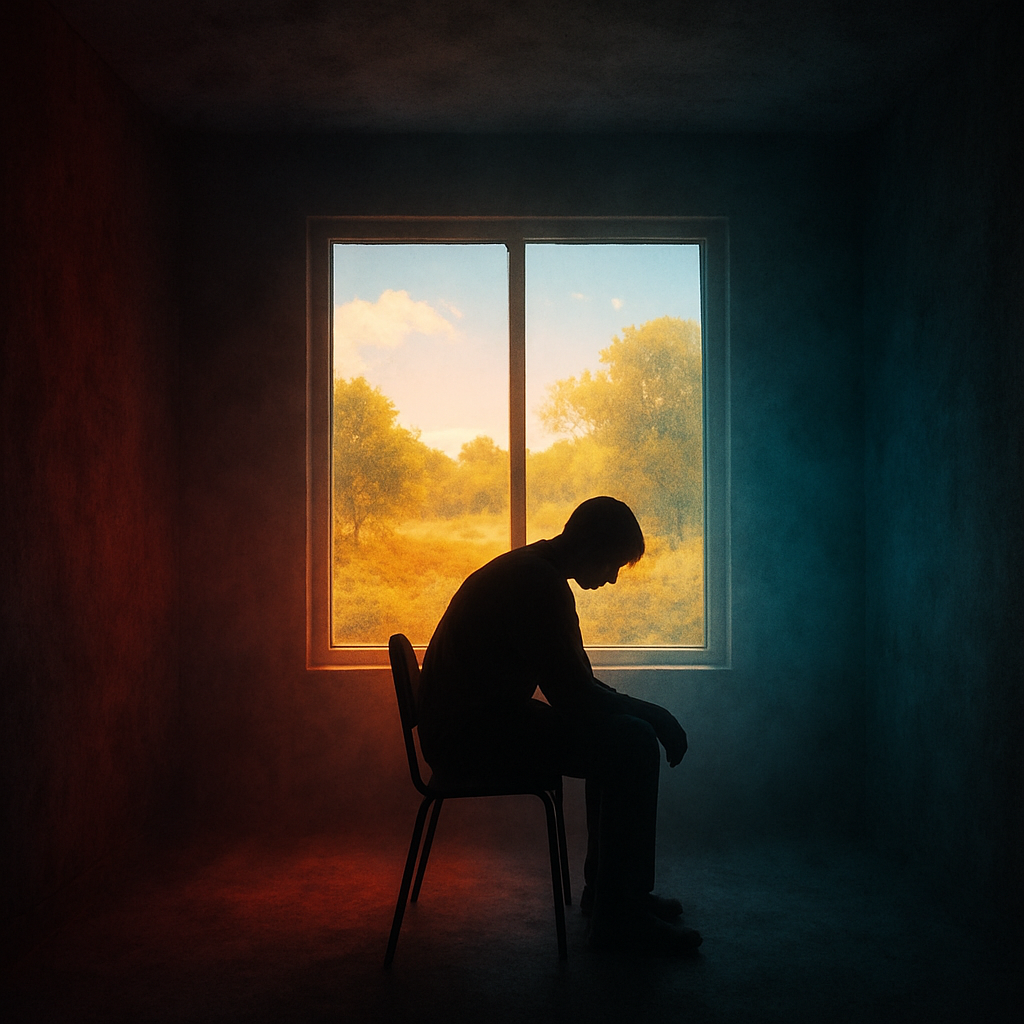Schizophrenia and Medication: Getting Grounded When the Mind Feels Like It's Floating Away
Let's take a deep breath together.
4 min read
 Monique Cohen, APRN, PMHNP-BC
:
Aug 12, 2025 11:17:05 AM
Monique Cohen, APRN, PMHNP-BC
:
Aug 12, 2025 11:17:05 AM

Let’s start with the truth:
Living with bipolar disorder isn't just “mood swings.”
It’s not being “too emotional,” or dramatic, or indecisive.
It’s a real condition. And for many people, it can feel like a mental and emotional rollercoaster- big highs, deep lows, and no idea when the next turn is coming. Exhausting, right?
So let’s talk about what helps.
Let’s talk about medication.
Not as a magic fix. Not as something that will erase your personality. But as one powerful way to help you feel more stable, more present, and more in control of your own life again.
Bipolar disorder is a mental health condition that affects your mood, energy, sleep, thoughts, and behavior. It typically includes episodes of:
Depending on the type, these episodes can last days, weeks, or even longer, and they often disrupt work, relationships, and daily functioning. And no, you can’t just “snap out of it.”
There are a few different types:
Involves full-blown mania, often with depressive episodes. Mania may include risky behavior, delusions, or the need for hospitalization.
Involves hypomania (a milder form of mania) and depressive episodes, but the depression can hit hard.
A milder but chronic pattern of mood swings, with ups and downs that don’t meet full criteria for mania or depression, but still affect daily life.
It’s not a character flaw. It’s not about willpower. It’s about brain chemistry, and brain chemistry can be supported.
Here’s what I hear a lot:
“I don’t want to take meds and lose who I am.”
“What if I don’t feel creative anymore?”
“Do I really need meds, or can I just ride it out?”
All fair questions. But here’s the deal: untreated bipolar disorder isn’t just uncomfortable, it can be dangerous.
Medication doesn't take away your identity. It gives you back your stability.
When meds are working, people say things like:
“I still feel like myself. I just don’t feel like I’m flying off the rails anymore.”
“I can trust my own decisions again.”
“I’m finally able to enjoy the calm.”
And that matters.
Medication for bipolar disorder usually involves mood stabilizers, antipsychotics, antidepressants (with caution), or a combination. Let’s walk through them.
These are the front-line meds for bipolar. They help keep your brain from swinging too far in either direction, up or down.
Common options:
Don’t let the name scare you, these meds aren’t just for “psychosis.” They’re commonly used to treat bipolar symptoms, especially mania or mixed states.
Examples:
These meds can work quickly and are often used during or after a manic episode to help bring things back down and keep them steady.
Here's where things get tricky. Antidepressants can help with depressive episodes, but for people with bipolar disorder, they can trigger mania if not balanced with a mood stabilizer.
So while they're sometimes part of the plan, they're never used alone in bipolar treatment. Always paired with a mood stabilizer to keep things from swinging too far.
Bipolar disorder often comes with sleep issues and anxiety, so sometimes short-term meds like:
…are added to support rest and reduce agitation. Sleep is crucial to mood regulation, so this part is more important than it might seem.
Let’s keep it real: no one wants side effects.
And while they’re possible (dry mouth, weight changes, sedation, etc.), your provider's job is to help you find something that works with your life- not against it.
This is a trial-and-error process, not a one-time shot. Be patient. Stay in conversation with your prescriber. If something doesn't feel right, speak up. There are so many options now, it's about finding your fit.
And if you’re afraid of “flattening” your emotions? That usually means the dose or med needs adjustment. You should still feel. Still laugh. Still cry. Just with less chaos.
Maybe. Maybe not.
Some people need long-term meds to stay stable. Others use them during certain life seasons. The most important thing is what helps you stay well.
If you decide to stop medication, it should always be gradual and supervised, because sudden withdrawal can trigger major episodes. You don’t have to stay on meds “just because”, but you also don’t have to stop just to prove you can.
You deserve consistency. You deserve stability. And you deserve to feel safe in your own mind.
Medication helps your brain settle. Therapy helps you understand yourself, your patterns, and your relationships.
When you combine the two? That’s where the magic happens.
Here's the hard part: mania can sometimes feel good. Euphoric. Productive. Creative. Unstoppable.
It's tempting to see that as “your best self.”
But mania isn't sustainable. It burns you out. It costs relationships, jobs, and health. That “high” is almost always followed by a devastating crash.
Medication isn't about dulling your light, it's about helping you shine without burning out. It lets you keep your creativity, your ideas, your energy- but with guardrails.
If you've been diagnosed with bipolar disorder, I want you to hear this:
You are not broken.
You are not unstable.
You are not too much.
You are not unfixable.
You are a person with a beautiful, complex brain that sometimes needs extra support.
Medication isn't giving up.
It's standing up: for your life, your relationships, your peace.
It’s giving your brain a fair shot at balance.
It’s choosing stability so you can build the life you actually want, not just survive the highs and lows.
If you're struggling, or if you’ve been white-knuckling it through the rollercoaster, please talk to someone. You don’t have to figure this out alone. You don't have to feel ashamed. You do deserve relief.
Let's take the stigma off the table. Let's put your health back on it.
And if there's a cozy chair, a warm cup of coffee, and a provider who listens? Even better.
You're worth the support.


Let's take a deep breath together.

Let's start with a deep breath.

(Spoiler alert: It's not about changing who you are-it's about helping you feel more like yourself.)